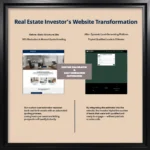Are you standing at the crossroads of website creation, torn between two of the most popular platforms available? Choosing the right website builder can feel like navigating a maze, especially when comparing WordPress and Wix – two powerhouses that couldn’t be more different in their approach.
This detailed guide will walk you through everything you need to know about these platforms, helping you make an informed decision that aligns perfectly with your goals and technical comfort level.
Breaking Down the Fundamental Differences
WordPress and Wix represent two completely different philosophies in website creation. Think of WordPress as a powerful toolkit that requires assembly, while Wix is more like a furnished apartment ready to move into.
WordPress operates as an open-source content management system that you host yourself. This means unlimited customization possibilities but requires more hands-on management. You’ll have complete ownership of your site and data, plus access to thousands of themes and plugins.
Wix functions as an all-in-one hosted solution where everything is managed for you. Their visual drag-and-drop builder lets you see changes in real-time, making it incredibly user-friendly for those without coding experience.
Core Strengths of Each Platform
Why WordPress Stands Out
- Unlimited Customization: With over 60,000 plugins and countless themes, you can build virtually anything imaginable
- Complete Ownership: Your content, data, and website belong entirely to you
- SEO Powerhouse: Built-in SEO advantages with plugins like Yoast and RankMath for advanced optimization
- Scalability: Grows with your business from simple blog to enterprise-level site
Where Wix Excels
- Beginner-Friendly: Zero coding knowledge required – if you can use a computer, you can build with Wix
- All-Inclusive Package: Hosting, security, updates, and support all handled automatically
- Professional Templates: Hundreds of designer-quality templates across every industry
- Integrated Features: Built-in e-commerce, booking systems, and marketing tools
Real-World Applications and Use Cases
WordPress is Perfect For:
- Content-heavy websites and professional blogs
- Large e-commerce stores with complex product catalogs
- Membership sites and online communities
- Corporate websites requiring custom functionality
- Sites that need to integrate with multiple third-party services
Wix Works Best For:
- Small business websites and local service providers
- Creative portfolios for artists, photographers, and designers
- Simple online stores with fewer than 100 products
- Event websites and landing pages
- Personal websites and hobby blogs
Getting Started: Your Step-by-Step Roadmap
WordPress Journey
- Choose Your Hosting: Select a reliable hosting provider (we recommend SiteGround or Bluehost for beginners)
- Install WordPress: Most hosts offer one-click installation
- Pick Your Theme: Browse free themes in the WordPress repository or invest in a premium option
- Install Essential Plugins: Start with SEO, security, and backup plugins
- Customize and Launch: Add your content, adjust settings, and go live
Wix Journey
- Sign Up: Create your free Wix account
- Choose Creation Method: Use Wix ADI (AI) or the traditional editor
- Select Template: Pick from hundreds of professionally designed templates
- Customize: Drag, drop, and modify elements to match your vision
- Publish: Preview your site and publish when ready
Expert Strategies for Success
Strategic Planning Approach
Start by honestly assessing your technical skills and time availability. If you enjoy learning new technologies and want maximum control, WordPress rewards the investment. If you prefer focusing on content and business growth over technical details, Wix lets you stay in your zone of genius.
Common Mistakes to Sidestep
- Plugin Overload (WordPress): Resist the temptation to install every plugin that looks interesting. Each addition can slow your site and create security vulnerabilities
- Template Traps (Wix): Don’t let beautiful templates distract from your core message. Choose based on functionality, not just aesthetics
- Ignoring SEO Basics: Both platforms offer SEO tools, but you must actively use them. Set up analytics, optimize your content, and create an SEO strategy from day one
Looking Ahead: The Future of Website Building
The website building landscape continues evolving rapidly, with artificial intelligence and machine learning leading the charge. WordPress is doubling down on its Gutenberg block editor, making it more visual and user-friendly while maintaining its flexibility. Meanwhile, Wix is pushing boundaries with AI-powered design suggestions and automated SEO optimization.
Both platforms are also improving their e-commerce capabilities, recognizing that nearly every business needs some online selling functionality. WordPress through WooCommerce enhancements and Wix through their expanding business suite.
Making Your Final Decision
Your choice between WordPress and Wix ultimately comes down to your priorities, skills, and business objectives. WordPress offers unmatched flexibility and growth potential but requires more involvement and learning. Wix provides immediate results and hassle-free maintenance but with less control and customization.
Consider starting with Wix if you’re new to websites and need to get online quickly. You can always migrate to WordPress later as your needs grow more complex. Conversely, if you have the time to learn and want maximum control from the start, WordPress will serve you well for years to come.


